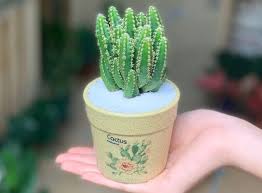
Feng Shui, the ancient Chinese art of placement, is centered around creating harmony in living environments to foster positive energy flow or Chi (Qi). The principles of Feng Shui are based on balancing the elements of nature—wood, fire, earth, metal, and water—and strategically positioning decor items to create a harmonious and prosperous living space. One of the most important aspects of Feng Shui is the careful selection of home decor items that encourage positive energy, support well-being, and promote health, wealth, and happiness.
In this article, we will guide you through the process of choosing home decor that aligns with Feng Shui principles. We will explore the significance of various decor items, how to select them based on your goals, and how to place them within your home to maximize their positive impact.
1. Understanding Feng Shui in Home Decor
Feng Shui is rooted in the belief that the environment we live in affects our mood, health, relationships, and overall well-being. It encourages the organization of space and selection of decor in a way that allows energy to flow freely, without obstruction. According to Feng Shui, every object in your home carries energy that can either enhance or disrupt the natural flow of Chi.
When applying Feng Shui to home decor, the goal is to create balance, improve energy flow, and ensure that your living space supports your life goals. By carefully selecting decor pieces and arranging them thoughtfully, you can attract positive energy into your home, leading to a more fulfilling life.
2. The Role of Color in Feng Shui
Colors are a vital aspect of Feng Shui as they directly influence the energy in a space. Each color corresponds to one of the five elements of Feng Shui and can enhance specific aspects of life. When choosing decor for your home, consider the colors that align with your intentions and the energy you wish to cultivate in each room.
2.1 The Five Elements and Their Colors
- Wood: Green and brown are associated with the Wood element. Green is considered a color of growth, vitality, and renewal. Brown represents stability, grounding, and support. These colors are ideal for creating a nurturing and abundant environment.
- Fire: Red, pink, purple, and orange are linked to the Fire element. These colors are vibrant and energetic, making them perfect for stimulating passion, creativity, and excitement. Fire colors are suitable for areas such as the living room or dining room, where social interaction and energy flow are important.
- Earth: Yellow, beige, and earthy tones are connected to the Earth element. These colors promote stability, nourishment, and harmony. Earthy tones work well in spaces meant for relaxation, such as bedrooms or living rooms, as they provide a sense of grounding and balance.
- Metal: White, gray, and metallic shades are associated with the Metal element. These colors encourage clarity, precision, and efficiency. Metal colors are ideal for creating a space of mental clarity, making them perfect for home offices or study areas.
- Water: Blue and black are linked to the Water element. These colors represent calm, tranquility, and abundance. Water colors are excellent for areas where you seek relaxation and peace, such as bathrooms or meditation spaces.
When selecting colors for your home, it’s essential to balance these elements based on the specific energy needs of each room. For example, the living room might benefit from vibrant Fire colors to foster social interactions, while a bedroom may thrive with Earth tones to promote restful sleep and tranquility.
3. Feng Shui Decor for Different Areas of the Home
Feng Shui is all about creating a space that supports the specific functions of each room. By carefully choosing decor items that correspond with the energy required for each space, you can optimize the positive effects of Feng Shui in your home.
3.1 The Entrance (Mouth of Chi)
In Feng Shui, the entrance to your home is considered the “Mouth of Chi,” where energy enters. This area plays a crucial role in setting the tone for the rest of your living space. Decor in the entrance should be welcoming and energizing to invite positive Chi into your home.
Decor Tips for the Entrance:
- Use bright, welcoming colors such as red, orange, or yellow.
- Place a mirror strategically to reflect light and energy into the space, but avoid placing it directly opposite the door, as it can push away the energy.
- Incorporate plants or flowers to invite life and vitality into the space.
- Keep the entrance tidy and clutter-free to ensure the smooth flow of Chi.
3.2 The Living Room (Social Energy)
The living room is the space where you gather with family and friends, and it should be a place of warmth, comfort, and positive energy. In Feng Shui, the living room represents social energy, relationships, and communication.
Decor Tips for the Living Room:
- Use Fire element colors like red, purple, or orange to stimulate social interactions and creativity.
- Ensure seating is arranged to allow for open conversation and engagement. Avoid placing furniture in a way that creates a feeling of separation.
- Incorporate soft, comfortable furniture and textiles to promote relaxation and ease.
- Avoid sharp corners or angular furniture, as they can create “poison arrows” that disrupt the flow of Chi.
- Add personal items, such as family photos, to enhance the energy of connection and love.
3.3 The Bedroom (Rest and Relaxation)
The bedroom is where we rest and recharge, making it an essential space for creating a peaceful and nurturing environment. Feng Shui principles emphasize balance and harmony in the bedroom to promote restful sleep and relaxation.
Decor Tips for the Bedroom:
- Choose soft, calming colors like light blue, beige, or pastel shades to encourage restful sleep.
- Opt for a solid headboard for the bed to provide stability and support.
- Keep the space clutter-free to ensure a smooth flow of Chi and avoid stress.
- Place the bed in the “command position,” where it has a clear view of the door without being directly in line with it.
- Avoid placing mirrors in the bedroom, as they are believed to disrupt sleep and reflect energy away from the bed.
3.4 The Kitchen (Nourishment and Abundance)
The kitchen is the heart of the home, where nourishment and abundance are created. Feng Shui emphasizes cleanliness and organization in the kitchen, as clutter can hinder the flow of positive energy and block prosperity.
Decor Tips for the Kitchen:
- Use Earth element colors such as yellow, beige, or terracotta to promote nourishment and stability.
- Keep the kitchen organized and clutter-free to ensure the smooth flow of Chi.
- Use high-quality appliances and cookware to enhance the energy of abundance and prosperity.
- Incorporate plants or herbs in the kitchen to add vitality and a sense of freshness.
3.5 The Office (Career and Wealth)
The office is where you focus on career goals, productivity, and financial success. Feng Shui encourages the use of decor items that inspire focus, creativity, and motivation.
Decor Tips for the Office:
- Use Metal element colors like white, gray, or metallic tones to enhance clarity and focus.
- Place the desk in the “command position,” where you have a clear view of the door but are not directly in line with it.
- Keep the workspace tidy and free of clutter to encourage mental clarity and productivity.
- Add symbols of wealth and prosperity, such as a wealth vase or a plant with rounded leaves, to attract abundance.
4. The Importance of Natural Elements in Feng Shui Decor
Incorporating natural elements into your home decor is an essential part of Feng Shui. Natural materials help connect your living space with the earth’s energy and promote a sense of balance and harmony.
4.1 Plants and Flowers
Plants are a significant aspect of Feng Shui decor, as they symbolize life, growth, and vitality. They help purify the air, add color, and promote positive energy. When choosing plants, select those with rounded leaves and avoid thorny plants, which can create negative energy.
Plant Placement Tips:
- Place plants in the living room, kitchen, or wealth corner (southeast) to enhance prosperity and vitality.
- Avoid placing plants in the bedroom, as their energy may be too stimulating for restful sleep.
4.2 Natural Materials
In Feng Shui, natural materials such as wood, stone, and clay are used to create a grounded and balanced environment. These materials can be incorporated into furniture, flooring, and decor to enhance the flow of Chi and promote positive energy.
Natural Material Tips:
- Use wooden furniture to represent the Wood element, promoting growth and vitality.
- Incorporate stone or clay decor to represent the Earth element, providing stability and grounding.
- Use water features, such as fountains or aquariums, to encourage the flow of wealth and abundance.
5. Feng Shui Decor Items to Avoid
While Feng Shui encourages certain types of decor, there are also items that should be avoided as they can disrupt the flow of Chi and create negative energy.
Decor Items to Avoid:
- Broken items: These represent unfinished business and stagnant energy. Repair or dispose of broken decor.
- Sharp or pointed objects: These can create “poison arrows” that direct negative energy toward you.
- Clutter: Excess clutter can block the flow of Chi and create a chaotic environment.
- Mirrors facing the bed: This is believed to disrupt sleep and reflect energy away from the bed.
Conclusion
Choosing home decor according to Feng Shui principles is a powerful way to create a harmonious and prosperous living space. By selecting decor items that balance the five elements, promoting positive energy, and considering the specific needs of each room, you can enhance your well-being, attract wealth, and create a more peaceful and balanced home. Through thoughtful placement, color choices, and the inclusion of natural elements, you can transform your home into a sanctuary that supports both your spiritual and material growth.










